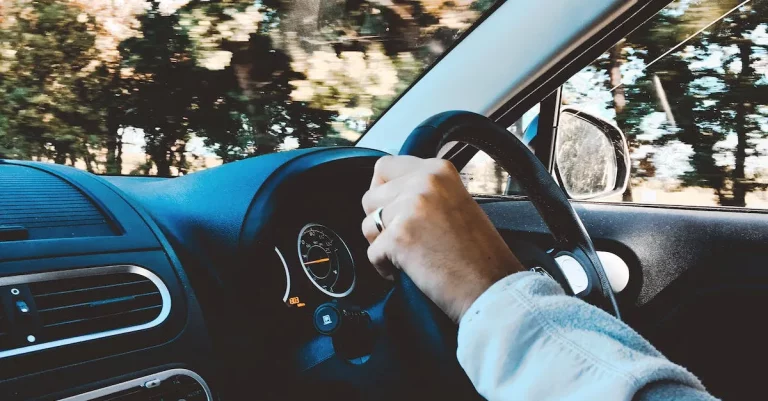Can An Individual Legally Have Both A Texas Driver’S License And Another State’S License?
Having driver’s licenses from multiple states concurrently is generally not legal. To directly answer the question – no, an individual cannot legally hold both a valid Texas driver’s license and another state’s license at the same time. Here’s a quick explanation: Texas state law prohibits people from having more than one driver’s license. The Texas Department of Public Safety requires new state residents to surrender any out-of-state licenses within 90 days to get a Texas license.
In this comprehensive guide, we’ll cover Texas laws and regulations related to holding licenses from other states. We’ll discuss eligibility, application processes, and steps for transferring an out-of-state license. We’ll also explain penalties for failing to follow proper procedures when moving to Texas and holding multiple licenses.
Texas Laws on Out-of-State Licenses for New Residents
When individuals move to Texas from another state, they often wonder if they can legally have both a Texas driver’s license and another state’s license. The laws regarding out-of-state licenses for new residents in Texas can be a bit confusing, so it’s important to understand the rules and regulations to ensure compliance.
Surrendering previous licenses
According to Texas law, individuals who establish residency in the state are required to surrender their previous driver’s license from another state within 90 days of moving to Texas. This means that if you are a new resident and already have a valid driver’s license from another state, you must surrender it and obtain a Texas driver’s license.
It’s important to note that failing to surrender your out-of-state license within the specified timeframe can result in penalties, such as fines or even the suspension of your driving privileges. Therefore, it’s crucial to follow the proper procedures and ensure compliance with Texas law.
Obtaining a Texas license
Once you have surrendered your out-of-state license, you can begin the process of obtaining a Texas driver’s license. To do so, you will need to visit your local Texas Department of Public Safety (DPS) office and provide the necessary documentation, including proof of identity, residency, and Social Security number.
It’s worth mentioning that Texas does not have a reciprocity agreement with all states, meaning that the requirements for obtaining a Texas driver’s license may vary depending on the state you are coming from.
Therefore, it’s recommended to check the specific requirements for your state of origin before visiting the DPS office.
Renewal and expiration rules
Once you have obtained a Texas driver’s license, it’s important to be aware of the renewal and expiration rules. In Texas, driver’s licenses are typically valid for six years for individuals aged 18-84. However, there are certain exceptions and additional requirements for drivers over the age of 85.
It’s also worth noting that Texas offers online renewal options for driver’s licenses, making the process more convenient for residents. By visiting the Texas DPS website, eligible individuals can renew their driver’s license without having to visit a physical office.
If you have any further questions or need more information regarding Texas laws on out-of-state licenses for new residents, it’s advisable to consult the official Texas Department of Public Safety website at https://www.dps.texas.gov/.
This website provides comprehensive information on driver’s licenses, including the specific requirements for new residents and the renewal process.
Applying for a Texas Driver’s License as a New Resident
When moving to Texas, one of the first things on your to-do list should be obtaining a Texas driver’s license. Having a valid driver’s license is essential for legally operating a motor vehicle in the state.
If you already hold a driver’s license from another state, you may wonder if you can legally have both a Texas driver’s license and another state’s license.
Eligibility requirements
To apply for a Texas driver’s license as a new resident, you must meet certain eligibility requirements. These requirements include being at least 18 years old, having a valid Social Security Number or proof of ineligibility, and being able to provide proof of identity and residency in Texas.
It’s important to note that Texas does not recognize the concept of a dual driver’s license, so it is generally not possible to have both a Texas driver’s license and another state’s license simultaneously.
Gathering documentation
Before visiting the Texas Department of Public Safety (DPS) office to apply for a driver’s license, you will need to gather the necessary documentation. This typically includes your current out-of-state license, proof of identity such as a passport or birth certificate, proof of residency in Texas, and proof of Social Security Number.
It’s always a good idea to check the specific requirements on the official DPS website to ensure you have all the necessary documents.
Visiting the DPS office
Once you have gathered all the required documentation, you will need to visit a DPS office in person to apply for your Texas driver’s license. At the office, you will need to complete an application form, provide the necessary documents, and pay the required fees.
The DPS office will also take your photograph and collect your fingerprints for identification purposes.
Passing required tests
In addition to submitting the required documentation, you will also need to pass certain tests to obtain a Texas driver’s license. These tests usually include a written knowledge test, a vision test, and a driving skills test.
It’s important to study the Texas Driver Handbook and prepare for the tests to increase your chances of success.
Consequences of Illegally Holding Multiple Licenses
While it may be tempting for some individuals to hold both a Texas driver’s license and another state’s license, doing so can have serious legal consequences. Let’s take a closer look at some of the potential penalties and issues that can arise from this situation.
Penalties and fines
Holding multiple licenses is considered a violation of the law in Texas. If caught, individuals may face penalties and fines. The specific amount can vary depending on the circumstances and the discretion of the court.
However, it is important to note that intentionally holding multiple licenses can be seen as an act of deception and may result in more severe consequences.
License suspension
One of the potential consequences of illegally holding multiple licenses is the suspension of both licenses. The Department of Public Safety (DPS) in Texas has the authority to suspend the Texas driver’s license if it becomes aware of an individual holding licenses from multiple states.
This can lead to significant inconvenience and limitations on driving privileges.
Insurance issues
Having multiple licenses can also lead to insurance issues. Insurance companies typically require individuals to disclose all licenses they hold when applying for coverage. Failing to provide accurate information can result in policy cancellation or denial of claims.
It’s important to be honest with your insurance provider to avoid potential legal and financial complications.
Travel limitations
Another consequence of illegally holding multiple licenses is potential travel limitations. Some states have reciprocity agreements, which means they share information about license holders. If a state becomes aware that an individual is holding licenses from both Texas and another state, they may impose restrictions on the individual’s driving privileges within their jurisdiction.
This can create challenges for individuals who frequently travel between states.
Conclusion
In summary, Texas law clearly prohibits holding both a Texas driver’s license and another state’s license simultaneously. New Texas residents must apply for a state license within 90 days and surrender any previous licenses. Illegally holding multiple licenses can result in serious penalties. Following proper procedures when moving to Texas ensures compliance with license laws.








